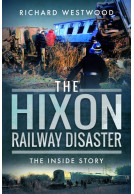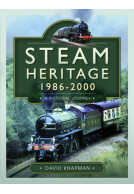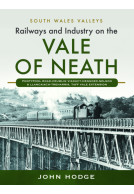The Hixon Railway Disaster (Hardback)
The Inside Story
Imprint: Pen & Sword Transport
Pages: 120
Illustrations: 30 colour & black and white illustrations, 2 diagrams & 2 maps
ISBN: 9781473884434
Published: 15th November 2017
(click here for international delivery rates)
Order within the next 11 hours, 35 minutes to get your order processed the next working day!
Need a currency converter? Check XE.com for live rates
| Other formats available | Price |
|---|---|
| The Hixon Railway Disaster Paperback Add to Basket | £10.49 |
| The Hixon Railway Disaster eBook (28.9 MB) Add to Basket | £6.99 |
This is the shocking true story behind the botched introduction of Automatic Half-Barrier level-crossings into Britain.
January 1968 saw the convening of the first Parliamentary Court of Inquiry into a railway accident in Britain since the Tay Bridge Disaster nearly a century before. Why was this? Because Britain's 'Railway Detectives', the Railway Inspectorate, who would normally investigate all aspects of railway safety, were also in charge of the introduction of automatic Continental-style, level-crossings into this country. At Hixon in Staffordshire, one of these newly installed 'robot' crossings on British Rail's flagship Euston to Glasgow mainline, was the scene of a fatal high-speed collision between a packed express train and an enormous, heavily laden low-loader. For once, the 'Railway Detectives' were the ones having to explain their actions, in the full glare of media attention, to an expectant and increasingly worried nation. (There was another awful, fatal collision at an automatic crossing at Beckingham, Lincolnshire, in April of 1968).
Using previously undisclosed information, the author has been able to cast fresh light on to not only the Hixon Disaster, but also the extraordinary story of the largely successful attempts, by British Railways and the Railway Inspectorate of the time, to hide the truth of just how close we came to having dozens of 'Hixons' right across the rail network.
The book provides an interesting description of the problems surrounding the introduction of Automatic Half Barrier level crossings, which were the main cause of the Hixon accident.
Rail Advert
Read the Full Review Here
This is an interesting story, well told, and many readers of the book will come to the same conclusion as the author.
West Somerset Railway Association
This book reveals the shocking true story behind the botched introduction of automatic half-barrier level-crossings into Britain in the mid 1960s.
RMT News March 2018
Not satisfied with the results, the author has produced a well researched, in-depth account complete with fascinating pictures and previously unpublished information about both the enquiry and the accidents.
As featured in
ASLEF Journal
A considerable monument to this industry.
Railway Correspondence and Travel Society
The material has been handled readably, and the illustrations are all unfamiliar.
For a student of the late 1960s British Railways, it is an essential addition to the bookshelf.
As featured in
Rail, 17th January 2018
Richard Westwood has done an extraordinary amount of research into the background of the two incidents. He reveals information which had not previously been published about the accidents and the inquiry which followed, casting a fairly damning light on British Railways and the Railway Inspectorate of the time.
The Shuttle, 29th November 2017
It’s a fascinating read which will appeal not just to rail and county historians but anyone interested in the behind-the-scenes machinations of big business.
Click here to read the full article by Ian Morris
As featured in
Hereford Times
A fascinating read which will appeal not just to rail and county historians but anyone interested in the behind-the-scenes machinations of big business.
Halesowen News
About Richard Westwood
Richard Westwood is a retired English teacher who has been a local councillor since 1989. He is of the first generation of his family not to have worked on the railways for approximately 150 years; his father was a 'passed' fireman and then a linesman or 'signals and telecommunication technician', his mother was a wartime booking office clerk and his grandfathers/great-grandfathers were shunters, locomotive shed fitters, and engine drivers on both the GWR and the LMS prior to nationalisation, and on British Railways afterwards. He does, however, have a lifelong interest in Britain's railways.
















